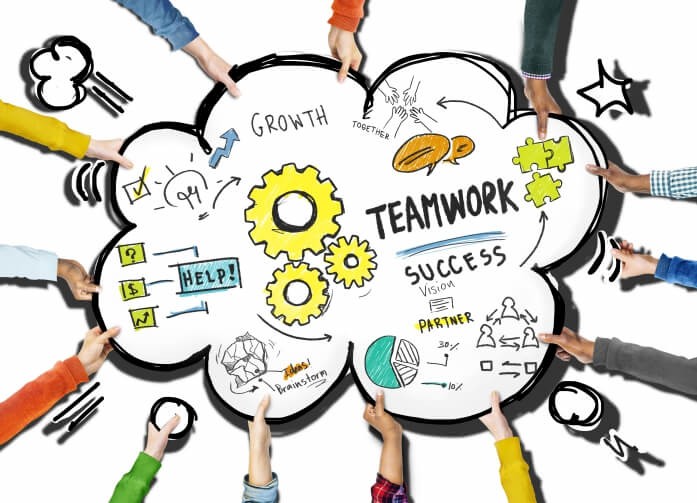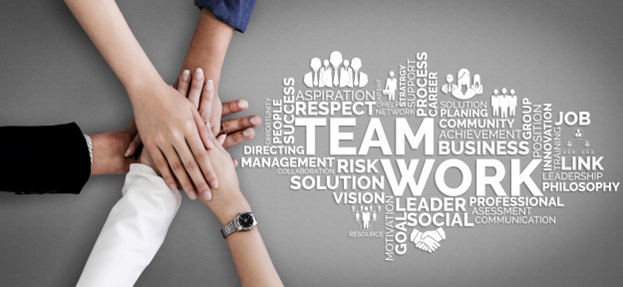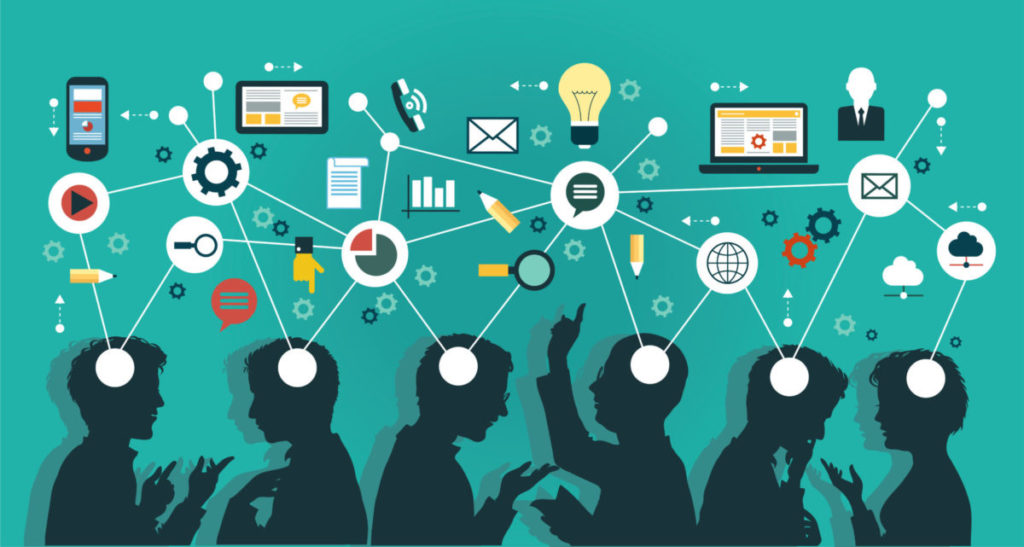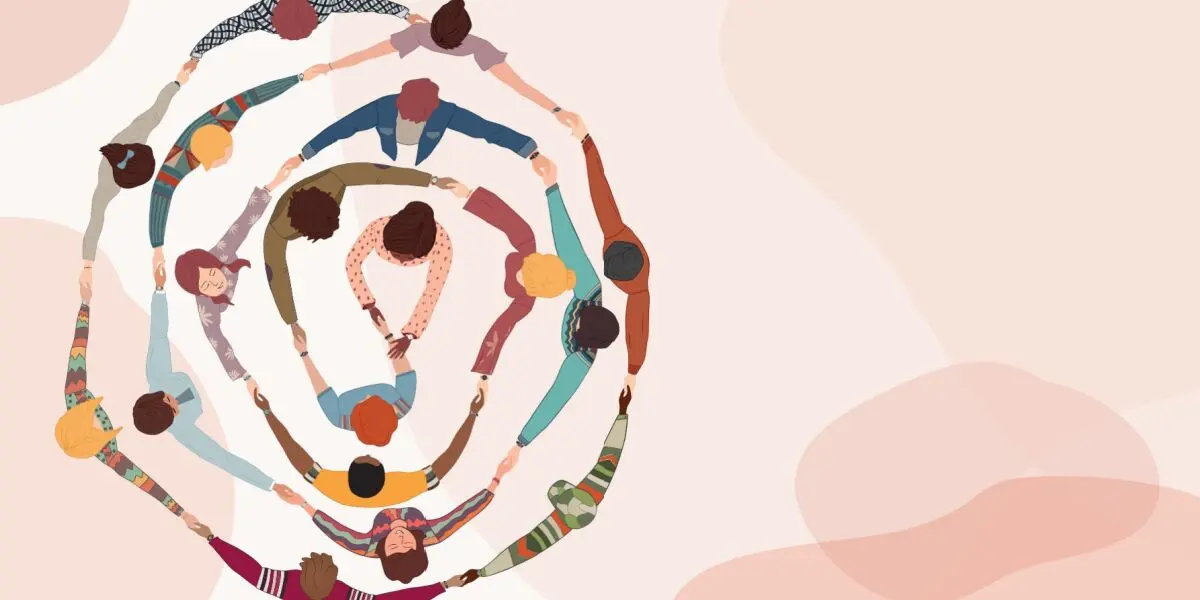In today’s fast-paced and interconnected world, the importance of teamwork and collaboration cannot be overstated. Whether in the workplace, educational institutions, or even in personal projects, the ability to work effectively with others is a critical skill that drives success. At Al Mithaq Institute, we understand the transformative power of collaboration, and our courses are designed to equip individuals with the skills needed to thrive in team environments. This article explores the numerous benefits of teamwork and collaboration, and how our programs can help you harness these advantages to achieve your personal and professional goals.
Table of Contents
- Introduction to Teamwork and Collaboration
- The Psychological Benefits of Teamwork
- Enhanced Problem-Solving Through Collaboration
- Increased Productivity and Efficiency
- Improved Communication Skills
- Diverse Perspectives and Innovation
- Building Trust and Stronger Relationships
- Teamwork in the Workplace: A Competitive Advantage
- The Role of Leadership in Fostering Collaboration
- Overcoming Challenges in Teamwork
- The Importance of Teamwork in Education
- How Al Mithaq Institute Prepares You for Collaborative Success
- Conclusion: The Future of Teamwork and Collaboration
1. Introduction to Teamwork and Collaboration
Teamwork and collaboration are foundational elements of success in any field. At its core, teamwork involves individuals working together towards a common goal, leveraging their unique skills and perspectives to achieve outcomes that would be difficult to attain individually. Collaboration, on the other hand, emphasizes the process of working jointly with others, often across different disciplines or departments, to solve problems and create innovative solutions.
In the modern world, where complexity and interdependence are the norms, the ability to collaborate effectively is more important than ever. Organizations are increasingly recognizing that the best ideas and solutions come from diverse teams that can bring different viewpoints to the table. This is why Al Mithaq Institute places a strong emphasis on teaching teamwork and collaboration skills across our various programs, from business management to legal training and beyond.
2. The Psychological Benefits of Teamwork
2.1. Increased Motivation and Engagement
Working in a team can significantly boost motivation and engagement. When individuals feel that they are part of a group working towards a shared goal, they are more likely to be invested in the outcome. This sense of belonging and purpose can lead to higher levels of job satisfaction and reduced stress.
2.2. Enhanced Emotional Support
Teams provide a support system that can help individuals navigate challenges and setbacks. Knowing that you have colleagues who can offer advice, share the workload, or simply lend an empathetic ear can make a big difference in maintaining mental well-being.
2.3. Sense of Accomplishment
Achieving a goal as part of a team can be incredibly rewarding. The collective effort and shared success can create a sense of accomplishment that is often more fulfilling than individual achievements.
3. Enhanced Problem-Solving Through Collaboration
3.1. Diverse Skill Sets
One of the most significant advantages of teamwork is the ability to draw on a wide range of skills and expertise. When individuals with different backgrounds and experiences come together, they can approach problems from multiple angles, leading to more comprehensive and effective solutions.
3.2. Brainstorming and Creativity
Collaboration often involves brainstorming sessions where team members can freely share ideas. This open exchange of thoughts can spark creativity and lead to innovative solutions that might not have been possible in a more isolated setting.
3.3. Faster Decision-Making
While it may seem counterintuitive, teams can often make decisions more quickly than individuals. By dividing tasks and responsibilities, teams can tackle complex problems more efficiently, reducing the time needed to reach a resolution.
4. Increased Productivity and Efficiency
4.1. Division of Labor
One of the most straightforward benefits of teamwork is the ability to divide tasks among team members based on their strengths and expertise. This division of labor allows for more efficient use of time and resources, leading to increased productivity.
4.2. Accountability and Responsibility
When working in a team, individuals are often held accountable by their peers. This sense of responsibility can drive team members to perform at their best, ensuring that tasks are completed on time and to a high standard.
4.3. Reduced Workload
By sharing the workload, teams can prevent burnout and ensure that no single individual is overwhelmed. This balanced approach to task distribution can lead to more sustainable productivity over the long term.
5. Improved Communication Skills
5.1. Active Listening
Effective teamwork requires active listening, where team members pay close attention to each other’s ideas and feedback. This skill is not only crucial for collaboration but also for building strong interpersonal relationships.
5.2. Clear and Concise Communication
In a team setting, clear and concise communication is essential to avoid misunderstandings and ensure that everyone is on the same page. This skill is particularly important in high-stakes environments where miscommunication can lead to costly errors.
5.3. Conflict Resolution
Disagreements are inevitable in any team, but effective communication can help resolve conflicts constructively. Learning how to navigate these challenges is a key component of successful collaboration.
6. Diverse Perspectives and Innovation
6.1. Cross-Functional Collaboration
When teams are composed of individuals from different departments or disciplines, they can bring unique perspectives to the table. This cross-functional collaboration can lead to more innovative solutions and a broader understanding of complex issues.
6.2. Cultural Diversity
In today’s globalized world, teams often include members from different cultural backgrounds. This diversity can enrich the team’s approach to problem-solving and lead to more creative outcomes.
6.3. Challenging Assumptions
Diverse teams are more likely to challenge assumptions and question the status quo. This critical thinking can lead to breakthrough ideas and transformative solutions.
7. Building Trust and Stronger Relationships
7.1. Trust as the Foundation of Teamwork
Trust is the cornerstone of any successful team. When team members trust each other, they are more likely to share ideas, take risks, and support one another. Building this trust requires open communication, reliability, and mutual respect.
7.2. Strengthening Interpersonal Relationships
Working closely with others can lead to stronger interpersonal relationships. These connections can extend beyond the workplace, creating a network of support and camaraderie that enhances both personal and professional life.
7.3. Long-Term Collaboration
Teams that build strong relationships are more likely to collaborate effectively over the long term. This continuity can lead to greater consistency and success in achieving shared goals.
8. Teamwork in the Workplace: A Competitive Advantage
8.1. Enhanced Employee Satisfaction
Organizations that prioritize teamwork often see higher levels of employee satisfaction. When employees feel that they are part of a cohesive team, they are more likely to be engaged and committed to their work.
8.2. Improved Organizational Performance
Teams that work well together can drive better organizational performance. By leveraging the strengths of each team member, organizations can achieve higher levels of productivity, innovation, and customer satisfaction.
8.3. Adaptability and Resilience
In a rapidly changing business environment, teams that can adapt quickly are more likely to succeed. Collaboration fosters a culture of flexibility and resilience, enabling organizations to respond effectively to new challenges and opportunities.
9. The Role of Leadership in Fostering Collaboration
9.1. Setting the Tone for Collaboration
Leaders play a crucial role in fostering a culture of collaboration. By setting the tone and leading by example, leaders can encourage team members to work together effectively.
9.2. Providing Resources and Support
Effective leaders ensure that their teams have the resources and support they need to collaborate successfully. This includes providing access to tools, training, and opportunities for team-building.
9.3. Encouraging Open Communication
Leaders who prioritize open communication create an environment where team members feel comfortable sharing ideas and feedback. This openness is essential for building trust and fostering collaboration.
10. Overcoming Challenges in Teamwork
10.1. Managing Conflict
Conflict is a natural part of any team dynamic, but it can be managed effectively with the right approach. By addressing conflicts early and constructively, teams can turn potential challenges into opportunities for growth.
10.2. Balancing Individual and Team Goals
One of the challenges of teamwork is balancing individual goals with the team’s objectives. Effective teams find ways to align these goals, ensuring that everyone is working towards a common purpose.
10.3. Dealing with Different Work Styles
Teams often consist of individuals with different work styles and preferences. By recognizing and accommodating these differences, teams can create a more inclusive and productive environment.
11. The Importance of Teamwork in Education
11.1. Collaborative Learning
In educational settings, teamwork is essential for collaborative learning. Students who work together on projects and assignments can learn from each other, develop new skills, and gain a deeper understanding of the material.
11.2. Preparing for the Workforce
Teamwork in education also prepares students for the workforce. By learning how to collaborate effectively, students develop the skills they need to succeed in their future careers.
11.3. Building Social Skills
Teamwork helps students build important social skills, such as communication, empathy, and conflict resolution. These skills are valuable not only in the workplace but also in personal relationships.
12. How Al Mithaq Institute Prepares You for Collaborative Success
At Al Mithaq Institute, we understand the importance of teamwork and collaboration in achieving success. Our programs are designed to equip you with the skills needed to thrive in team environments, whether you are pursuing a career in business, law, education, or any other field.
12.1. Comprehensive Training Programs
Our courses cover a wide range of topics, from leadership and communication to conflict resolution and project management. These programs are designed to help you develop the skills needed to work effectively with others.
12.2. Practical Experience
We believe that the best way to learn teamwork is through practice. That’s why our programs include hands-on projects and real-world scenarios that allow you to apply what you’ve learned in a collaborative setting.
12.3. Expert Faculty
Our faculty members bring years of professional experience to the classroom. They are dedicated to helping you succeed, providing personalized support and guidance throughout your educational journey.
12.4. Accreditation and Recognition
Our programs are accredited by both local and international bodies, ensuring that you receive a high-quality education that is recognized worldwide. This accreditation enhances the value of your diploma and opens doors to new opportunities.
13. Conclusion: The Future of Teamwork and Collaboration
As we look to the future, the importance of teamwork and collaboration will only continue to grow. In a world that is becoming increasingly interconnected, the ability to work effectively with others is a critical skill that can drive success in any field.
At Al Mithaq Institute, we are committed to helping you develop these essential skills. Whether you are looking to advance your career, start a new business, or simply improve your ability to work with others, our programs can provide you with the tools and knowledge you need to succeed.
By enrolling in one of our courses, you are taking the first step towards a brighter future. Join us today and discover the transformative power of teamwork and collaboration.
Ready to Take the Next Step?
Explore our wide range of programs designed to enhance your teamwork and collaboration skills. Visit our courses page to learn more.
Contact Us






